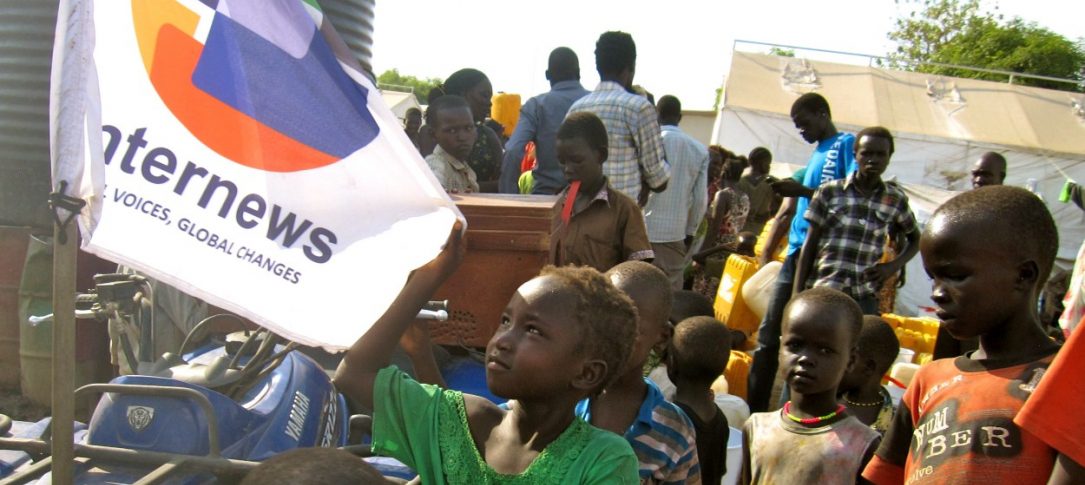Internews Humanitarian Information Service
When humanitarian response teams arrived in Aceh, Indonesia, in early 2005, they were met with a scene of utter devastation. The tsunami which had torn through the province had smashed everything: lives, buildings, institutions. The survivors of the disaster were focused on locating their loved ones, and finding shelter, food and medical help.
Quickly, some of those working for the response realized that most people had no idea what was going on, or what aid was available to them – and that this was seriously inhibiting their ability to make decisions about how to manage their recovery.
In other words, people needed information.
Focused on this critical need, the Internews team arrived a few weeks later, carrying two suitcase radios. We helped the one surviving radio station stay on air and reach audiences outside the capital. After that, we provided equipment to damaged stations to help them get back on their feet, and funds for journalists who had lost everything. Then we set up a dedicated radio show – Peuneugah Aceh (News for Aceh), specifically to share much needed information about the response. It broadcast on 31 local stations across the affected area.
A clear lesson of the first year has been the need to communicate. Every affected family should know what their future is, in terms of housing, employment, relief support, education for their children and healthcare.“
— Government of Sri Lanka Report ‘Sri Lanka: Post Tsunami recovery and reconstruction, progress, challenges, way forward,’ ReliefWeb 2005
Fifteen years later, that experience in Aceh has laid the groundwork for new models of response, both for Internews and across the humanitarian sector. The tsunami was not unique: in every crisis people need information, and we know that information saves lives. The models that Internews and other agencies developed to meet this need have now been applied in dozens of countries, from acute humanitarian emergencies to chronic conflict and displacement crises. They have evolved to include social media, adapted to cope with audiences across multiple borders, as with the refugee influx in Europe in 2015, and provided impartial information services in the midst of conflict. In the process, we’ve helped change the way the entire humanitarian sector thinks about how to provide information in a crisis and how to listen to those it seeks to serve.
Today, the principle that information is aid is established, and Internews and other agencies are now routinely asked to support community engagement in crisis. Models are adapted and tailored to each country so they can respond effectively to the changing needs of the population. But the objective is always the same: communities must have access to timely, coordinated and reliable information in their own languages, so they can make well-informed decisions for themselves, their families and their communities.
On this site, you can find out more about what Internews does, the models we apply, and how this has worked on the ground in crises ranging from earthquakes to conflict to refugee displacement. If you want to know more, are interested in providing support or partnering with us, we’d be glad to hear from you.
What do we do?
How do we do it?
